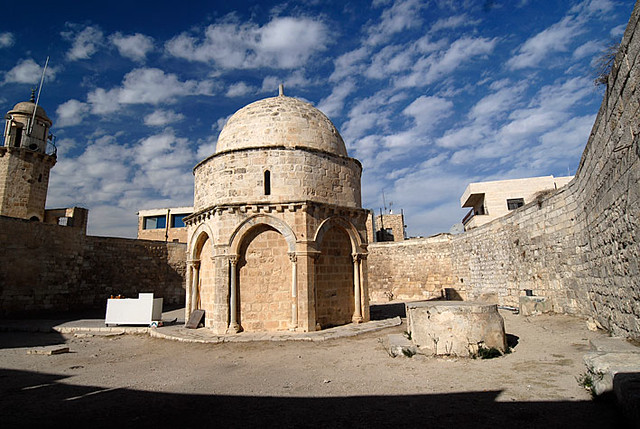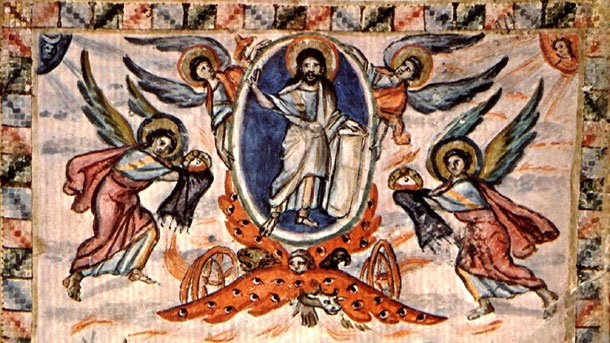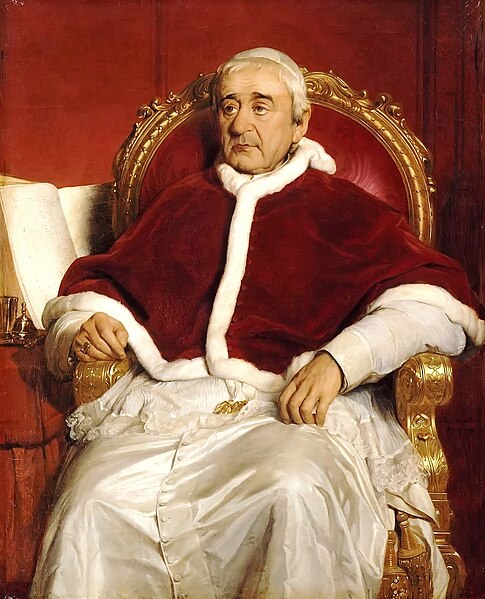 |
| Fra Angelico's Noli Me Tangere |
Readings: Acts 1:1-11; Psalm 46:2-3,6-9; Ephesians 1:17-23; Matthew 28:16-20
Some 40 days ago we heard how Mary Magdalene, on encountering the Risen Lord by His tomb, sought to cling on to Him, and Jesus told her: “Do not hold me, for I have not yet ascended to the Father” (John 20:17). Mary’s seeking to hold on to Christ is natural. She thought she had lost her Lord and did not know where to find Him, she does not wish to lose Him and be separated from Him again. It would be strange if we were to act differently in the same circumstances. And yet, the Solemnity of the Ascension is marked as one of the great feasts of the Church, it is a time for celebration. But, why? That the Word was made flesh and dwelt among us is clearly cause for great joy, but that He should no longer continue to live bodily among us . . . that seems harder to be happy about.
However, we have it on Christ’s own authority that His Ascension is good news for us. Earlier this week, we heard Jesus say to his disciples:
“Now I am going to the one who sent me.
Not one of you has asked, “Where are you going?”
You are sad at heart because I have told you this.
Still, I must tell you the truth:
It is for your own good that I am going,
because unless I go,
the Advocate will not come to you;
but if I do go,
I will send him to you.”
(John 16: 5-7)
Not one of you has asked, “Where are you going?”
You are sad at heart because I have told you this.
Still, I must tell you the truth:
It is for your own good that I am going,
because unless I go,
the Advocate will not come to you;
but if I do go,
I will send him to you.”
(John 16: 5-7)
So our sadness is understandable, and yet we should rejoice because Jesus Himself has told us that this His Ascension and the coming of the Holy Spirit is good news for us. And accordingly, next week we will celebrate the coming of the Holy Spirit with great joy, The Solemnity of Pentecost. However, it is important that we don’t conceive of today’s Solemnity as marking some sort of Trinitarian trade-in, of thinking that Christ is now absent, but soon we will have the Holy Spirit instead so we’re not to worry. It’s much better news than that. God’s love overflows. The disciples understood this as is evidenced in Luke when he tells us that after He had blessed them, parted from them and been raised up to heaven, “they worshipped Him and returned to Jerusalem with great joy and were continually in the temple blessing God.” (24:50-53)
For Christ continues to be present to us. And again, we can say that on His authority, for at the end of Matthew’s Gospel He tells us:
“Go therefore and make disciples of all nations, baptizing them in the name of the Father and of the Son and of the Holy Spirit, teaching them to observe all that I have commanded you; and lo, I am with you always, to the close of the age.”
So we have Jesus’ word that he will be with us always. We have not lost Him, He is with us still, but He has also given us the Holy Spirit and we have only to reflect on the great things the previously timid Apostles did after Pentecost to know what a great gift this is.
Yet, some might question whether this ‘being with us’ is just semantics; is it not just a nice way of saying, I’ll always be with you because I’ll always be in your memories? And our answer, as Catholics? An emphatic, No! His presence is real! Heaven is not some far off place, where God gazes upon us from great distance, occasionally meddling. We should not think that because Jesus is now in heaven at the right hand of Father, He is somehow shut off from us here on earth. The Church is the body of Christ and the sacraments are a place of genuine encounter with Christ. Truly, He is still with us.
 |
| Chapel of The Ascension, Mount of Olives |
The disciples who went back to Jerusalem so joyfully, evidently understood this. They knew that Christ was now present to them in a new and powerful way. They could start to make out the trajectory of His life and see his ascent in its true context.
For Jesus’ ascent had begun earlier, it had also been his self-offering on the Cross on which he was raised up. This offering supplanted all the old sacrifices. The same ascent is described in the Letter to the Hebrews as Him going up, not to a sanctuary made by human hands, but to heaven itself, into the presence of God (9:24). This ascent into God’s presence leads via the Cross – it is the ascent toward “loving to the end” (cf John 13:1), which is the real mountain of God. The sacrifice had been offered on the Cross and its acceptance is shown in the Resurrection and Ascension.
And this mountain, to which He is ascended, is not some far off place, set apart from all other places. God’s presence is not spatial, for he is immaterial, and His Divine Presence is everywhere. So now Jesus is returned to his Father, and He is no longer geographically located in one place, but exercises His Divine Dominion over Creation, present to all and present everywhere. This trajectory is also the one which we must follow; it is our ultimate goal. Humanity was offered to God in Christ the Victim, who is now forever at the right hand of the Father and the path has been made for us to follow. The path well-trodden by the Saints.
 |
The Ascension of Jesus Christ, a miniature from the Syrian Gospel, 6th century |
So today we should rejoice. We should rejoice at Mass when we recall that Christ is present to us in His priests, in His Word in the readings, in our joint prayers and song, and most especially in the Eucharist. Christ is present and the Faith is a present to us, but it is both gift and task; we receive the gift of God’s inner closeness and then must carry out the joyful task of bearing witness to Jesus Christ as he commanded us.






































